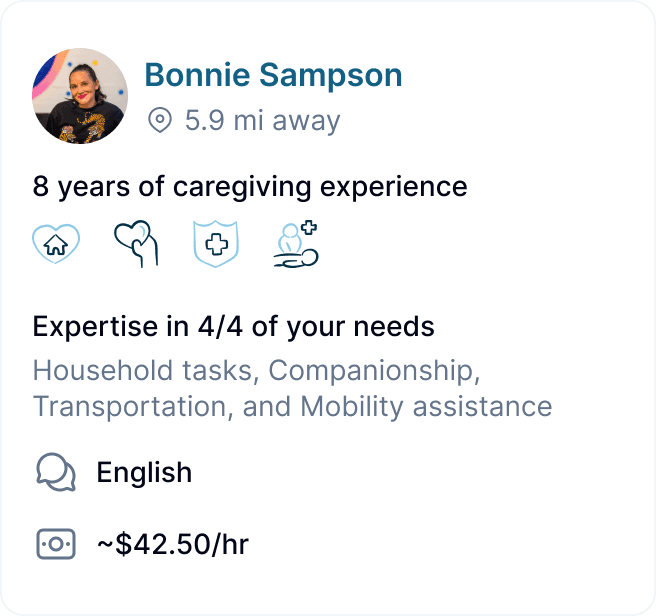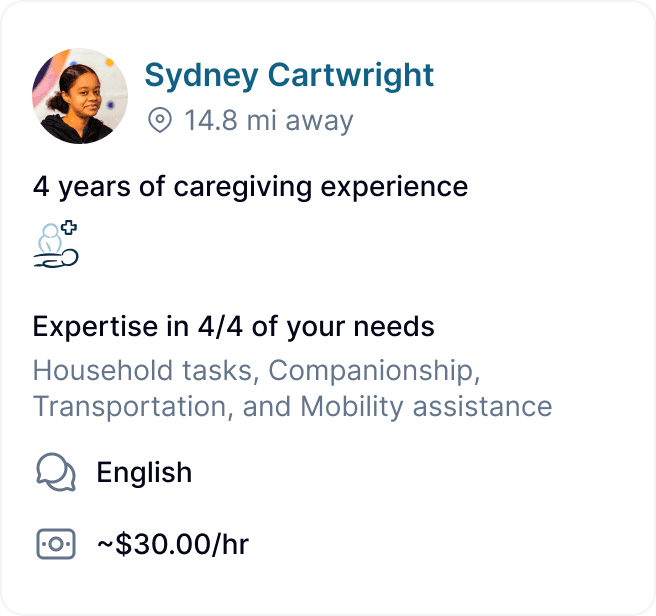Self-Determination in Senior Care: What It Means and Why It Matters



Aging is not simply a process of physical decline: it is a dynamic journey marked by shifting capacities, changing identities, and, for many, a re-evaluation of agency. Within this context, the concept of self-determination—defined as the capacity to make meaningful choices about one’s care, routines, and environment—emerges not as a luxury, but as a cornerstone of well-being and quality of life through the aging process.
But what exactly constitutes self-determination in senior care and why does it matter?
What Self-Determination Is (and Is Not)
At its core, self-determination in senior care refers to the preservation of choice—over how one spends time, who provides one’s care, and the degree of involvement in decisions that shape daily life. It is often conflated with autonomy, but the distinction is subtle and important: whereas autonomy implies independence from others, self-determination allows for interdependence. It accommodates shared decision-making, acknowledging that individuals may need support while still deserving authority over their lives.
In practice, this means seniors have the right to:
Dictate their schedules (wake times, meals, activities).
Choose or change caregivers.
Participate in care planning with real influence—rather than tokenistic input.
Why Self-Determination Matters
1. It Preserves Dignity and Identity
As humans, we typically derive identity through patterns—habits, preferences, routines. For instance, you might describe yourself as an avid cyclist—an identity you derive from completing a hobby you enjoy on a regular basis. When those patterns are disrupted without consent, identity erodes.
Disempowerment in care settings is not just inconvenient; it can be profoundly destabilizing. The loss of decision-making power correlates with reduced self-worth and, over time, psychological withdrawal.
2. It Acts as a Buffer Against Mental Health Decline
Empirical data consistently link self-determination to improved mental health outcomes in older adults. Involvement in decisions—however small—can protect against depression and anxiety, increase engagement, and sustain motivation. Importantly, this benefit persists even when cognitive or physical limitations are present; the key is perceived control, not necessarily full independence.
3. It Reframes Support as Partnership
There is a common but flawed assumption that receiving care and exercising choice are mutually exclusive. In reality, the two are compatible. Seniors who participate in decisions—about what help is needed, when, and from whom—report feeling more independent, even as they accept support. It is not the presence of care that threatens autonomy, but its imposition.
Involving your loved one in decision making from the outset establishes a foundation of respect, which is critical for navigating the complex challenges of aging.
Barriers to Realizing Self-Determination
Despite its benefits, self-determination is often undermined in practice. Why?
Rigid Institutional Structures: Many care environments prioritize efficiency over individual preference. Fixed schedules, inflexible policies, and staff shortages make personalized care difficult to implement.
Cognitive and Physical Decline: When decision-making capacity diminishes, it becomes more complex—but not impossible—to support self-determination. Too often, the response is paternalism rather than finding creative ways to support your loved one's ongoing involvement in their care.
Fragmented Systems: When services are siloed and communication is poor, seniors and families are excluded from meaningful participation.
Lack of Advocacy and Awareness: Many seniors are unaware they have the right to direct their care. Others have internalized the belief that dependence means forfeiting control.
How to Support Self-Determination in Practice
Promoting self-determination requires more than good intentions. It calls for systemic change and daily, deliberate practices:
1. Shared Decision-Making: Even when full independence isn’t possible, collaboration ensures the senior’s values remain central.
2. Support for Communication: Tools like visual aids, advanced directives, and care advocates can bridge gaps when communication is difficult. A professional occupational therapist can assist with creative communication tools.
3. Education and Advocacy: Families and caregivers need to understand that self-determination is a right, not a privilege, and advocate for systems that uphold it.
4. Personalized Scheduling: Empower seniors to choose when they receive care—meals, bathing, medications, and activities. This respects their rhythms rather than forcing compliance with institutional norms.
5. Caregiver Choice and Continuity: Consistency matters. So does compatibility. Seniors should have input into who provides their care.
How Home Care Supports Self-Determination
Home care, by design, avoids many of the structural constraints of institutional care. It occurs in a familiar environment, maintains the rhythms of daily life, and allows greater flexibility in routines and relationships. Seniors are more likely to feel “at home” because they literally are—and this matters.
At Clara, self-determination isn't just a marketing buzzword. We believe that seniors should be empowered to choose who their caregiver is, as well as when and what care is provided. The goal isn’t just to meet basic needs—it’s to align care with the person’s values, habits, and support their sense of empowerment as they move through the aging process.
Although home care agencies do provide private care at home (which, by nature, comes with a degree of personalization), agency policies often constrain care flexibility, such that seniors have significantly less choice over their caregiver and when that care is provided, limiting scope for self-determination in practice. This is where Clara's direct-hire model shines: families can find, hire and retain their perfect caregiver, set a personalized care schedule that works for their loved one (after consulting with their loved one, of course), and Clara will handle everything else.
You can read more about the differences between agency-based and independent caregivers here, and more about how Clara works here.
Conclusion
Self-determination isn’t merely a humane ideal. It’s a cognitive, emotional, and relational necessity. It sustains identity, supports mental health, and builds trust in care relationships. Whether someone is fully independent or needs 24-hour support, they remain a person first—capable of preferences, deserving of respect, and entitled to choice.
In aging, as in all of life, agency matters. The systems we build—and the care we provide—should reflect that. Thinking about personalized home care? Reach out to a Clara Care Expert today.
Aging is not simply a process of physical decline: it is a dynamic journey marked by shifting capacities, changing identities, and, for many, a re-evaluation of agency. Within this context, the concept of self-determination—defined as the capacity to make meaningful choices about one’s care, routines, and environment—emerges not as a luxury, but as a cornerstone of well-being and quality of life through the aging process.
But what exactly constitutes self-determination in senior care and why does it matter?
What Self-Determination Is (and Is Not)
At its core, self-determination in senior care refers to the preservation of choice—over how one spends time, who provides one’s care, and the degree of involvement in decisions that shape daily life. It is often conflated with autonomy, but the distinction is subtle and important: whereas autonomy implies independence from others, self-determination allows for interdependence. It accommodates shared decision-making, acknowledging that individuals may need support while still deserving authority over their lives.
In practice, this means seniors have the right to:
Dictate their schedules (wake times, meals, activities).
Choose or change caregivers.
Participate in care planning with real influence—rather than tokenistic input.
Why Self-Determination Matters
1. It Preserves Dignity and Identity
As humans, we typically derive identity through patterns—habits, preferences, routines. For instance, you might describe yourself as an avid cyclist—an identity you derive from completing a hobby you enjoy on a regular basis. When those patterns are disrupted without consent, identity erodes.
Disempowerment in care settings is not just inconvenient; it can be profoundly destabilizing. The loss of decision-making power correlates with reduced self-worth and, over time, psychological withdrawal.
2. It Acts as a Buffer Against Mental Health Decline
Empirical data consistently link self-determination to improved mental health outcomes in older adults. Involvement in decisions—however small—can protect against depression and anxiety, increase engagement, and sustain motivation. Importantly, this benefit persists even when cognitive or physical limitations are present; the key is perceived control, not necessarily full independence.
3. It Reframes Support as Partnership
There is a common but flawed assumption that receiving care and exercising choice are mutually exclusive. In reality, the two are compatible. Seniors who participate in decisions—about what help is needed, when, and from whom—report feeling more independent, even as they accept support. It is not the presence of care that threatens autonomy, but its imposition.
Involving your loved one in decision making from the outset establishes a foundation of respect, which is critical for navigating the complex challenges of aging.
Barriers to Realizing Self-Determination
Despite its benefits, self-determination is often undermined in practice. Why?
Rigid Institutional Structures: Many care environments prioritize efficiency over individual preference. Fixed schedules, inflexible policies, and staff shortages make personalized care difficult to implement.
Cognitive and Physical Decline: When decision-making capacity diminishes, it becomes more complex—but not impossible—to support self-determination. Too often, the response is paternalism rather than finding creative ways to support your loved one's ongoing involvement in their care.
Fragmented Systems: When services are siloed and communication is poor, seniors and families are excluded from meaningful participation.
Lack of Advocacy and Awareness: Many seniors are unaware they have the right to direct their care. Others have internalized the belief that dependence means forfeiting control.
How to Support Self-Determination in Practice
Promoting self-determination requires more than good intentions. It calls for systemic change and daily, deliberate practices:
1. Shared Decision-Making: Even when full independence isn’t possible, collaboration ensures the senior’s values remain central.
2. Support for Communication: Tools like visual aids, advanced directives, and care advocates can bridge gaps when communication is difficult. A professional occupational therapist can assist with creative communication tools.
3. Education and Advocacy: Families and caregivers need to understand that self-determination is a right, not a privilege, and advocate for systems that uphold it.
4. Personalized Scheduling: Empower seniors to choose when they receive care—meals, bathing, medications, and activities. This respects their rhythms rather than forcing compliance with institutional norms.
5. Caregiver Choice and Continuity: Consistency matters. So does compatibility. Seniors should have input into who provides their care.
How Home Care Supports Self-Determination
Home care, by design, avoids many of the structural constraints of institutional care. It occurs in a familiar environment, maintains the rhythms of daily life, and allows greater flexibility in routines and relationships. Seniors are more likely to feel “at home” because they literally are—and this matters.
At Clara, self-determination isn't just a marketing buzzword. We believe that seniors should be empowered to choose who their caregiver is, as well as when and what care is provided. The goal isn’t just to meet basic needs—it’s to align care with the person’s values, habits, and support their sense of empowerment as they move through the aging process.
Although home care agencies do provide private care at home (which, by nature, comes with a degree of personalization), agency policies often constrain care flexibility, such that seniors have significantly less choice over their caregiver and when that care is provided, limiting scope for self-determination in practice. This is where Clara's direct-hire model shines: families can find, hire and retain their perfect caregiver, set a personalized care schedule that works for their loved one (after consulting with their loved one, of course), and Clara will handle everything else.
You can read more about the differences between agency-based and independent caregivers here, and more about how Clara works here.
Conclusion
Self-determination isn’t merely a humane ideal. It’s a cognitive, emotional, and relational necessity. It sustains identity, supports mental health, and builds trust in care relationships. Whether someone is fully independent or needs 24-hour support, they remain a person first—capable of preferences, deserving of respect, and entitled to choice.
In aging, as in all of life, agency matters. The systems we build—and the care we provide—should reflect that. Thinking about personalized home care? Reach out to a Clara Care Expert today.
Aging is not simply a process of physical decline: it is a dynamic journey marked by shifting capacities, changing identities, and, for many, a re-evaluation of agency. Within this context, the concept of self-determination—defined as the capacity to make meaningful choices about one’s care, routines, and environment—emerges not as a luxury, but as a cornerstone of well-being and quality of life through the aging process.
But what exactly constitutes self-determination in senior care and why does it matter?
What Self-Determination Is (and Is Not)
At its core, self-determination in senior care refers to the preservation of choice—over how one spends time, who provides one’s care, and the degree of involvement in decisions that shape daily life. It is often conflated with autonomy, but the distinction is subtle and important: whereas autonomy implies independence from others, self-determination allows for interdependence. It accommodates shared decision-making, acknowledging that individuals may need support while still deserving authority over their lives.
In practice, this means seniors have the right to:
Dictate their schedules (wake times, meals, activities).
Choose or change caregivers.
Participate in care planning with real influence—rather than tokenistic input.
Why Self-Determination Matters
1. It Preserves Dignity and Identity
As humans, we typically derive identity through patterns—habits, preferences, routines. For instance, you might describe yourself as an avid cyclist—an identity you derive from completing a hobby you enjoy on a regular basis. When those patterns are disrupted without consent, identity erodes.
Disempowerment in care settings is not just inconvenient; it can be profoundly destabilizing. The loss of decision-making power correlates with reduced self-worth and, over time, psychological withdrawal.
2. It Acts as a Buffer Against Mental Health Decline
Empirical data consistently link self-determination to improved mental health outcomes in older adults. Involvement in decisions—however small—can protect against depression and anxiety, increase engagement, and sustain motivation. Importantly, this benefit persists even when cognitive or physical limitations are present; the key is perceived control, not necessarily full independence.
3. It Reframes Support as Partnership
There is a common but flawed assumption that receiving care and exercising choice are mutually exclusive. In reality, the two are compatible. Seniors who participate in decisions—about what help is needed, when, and from whom—report feeling more independent, even as they accept support. It is not the presence of care that threatens autonomy, but its imposition.
Involving your loved one in decision making from the outset establishes a foundation of respect, which is critical for navigating the complex challenges of aging.
Barriers to Realizing Self-Determination
Despite its benefits, self-determination is often undermined in practice. Why?
Rigid Institutional Structures: Many care environments prioritize efficiency over individual preference. Fixed schedules, inflexible policies, and staff shortages make personalized care difficult to implement.
Cognitive and Physical Decline: When decision-making capacity diminishes, it becomes more complex—but not impossible—to support self-determination. Too often, the response is paternalism rather than finding creative ways to support your loved one's ongoing involvement in their care.
Fragmented Systems: When services are siloed and communication is poor, seniors and families are excluded from meaningful participation.
Lack of Advocacy and Awareness: Many seniors are unaware they have the right to direct their care. Others have internalized the belief that dependence means forfeiting control.
How to Support Self-Determination in Practice
Promoting self-determination requires more than good intentions. It calls for systemic change and daily, deliberate practices:
1. Shared Decision-Making: Even when full independence isn’t possible, collaboration ensures the senior’s values remain central.
2. Support for Communication: Tools like visual aids, advanced directives, and care advocates can bridge gaps when communication is difficult. A professional occupational therapist can assist with creative communication tools.
3. Education and Advocacy: Families and caregivers need to understand that self-determination is a right, not a privilege, and advocate for systems that uphold it.
4. Personalized Scheduling: Empower seniors to choose when they receive care—meals, bathing, medications, and activities. This respects their rhythms rather than forcing compliance with institutional norms.
5. Caregiver Choice and Continuity: Consistency matters. So does compatibility. Seniors should have input into who provides their care.
How Home Care Supports Self-Determination
Home care, by design, avoids many of the structural constraints of institutional care. It occurs in a familiar environment, maintains the rhythms of daily life, and allows greater flexibility in routines and relationships. Seniors are more likely to feel “at home” because they literally are—and this matters.
At Clara, self-determination isn't just a marketing buzzword. We believe that seniors should be empowered to choose who their caregiver is, as well as when and what care is provided. The goal isn’t just to meet basic needs—it’s to align care with the person’s values, habits, and support their sense of empowerment as they move through the aging process.
Although home care agencies do provide private care at home (which, by nature, comes with a degree of personalization), agency policies often constrain care flexibility, such that seniors have significantly less choice over their caregiver and when that care is provided, limiting scope for self-determination in practice. This is where Clara's direct-hire model shines: families can find, hire and retain their perfect caregiver, set a personalized care schedule that works for their loved one (after consulting with their loved one, of course), and Clara will handle everything else.
You can read more about the differences between agency-based and independent caregivers here, and more about how Clara works here.
Conclusion
Self-determination isn’t merely a humane ideal. It’s a cognitive, emotional, and relational necessity. It sustains identity, supports mental health, and builds trust in care relationships. Whether someone is fully independent or needs 24-hour support, they remain a person first—capable of preferences, deserving of respect, and entitled to choice.
In aging, as in all of life, agency matters. The systems we build—and the care we provide—should reflect that. Thinking about personalized home care? Reach out to a Clara Care Expert today.
More about caregiving
More about caregiving


Do You Need a Caregiver or a Nurse?



Clara Editorial Team


How Much Does Aging In Place Cost?



Clara Editorial Team


What Is Personalized Home Care? Why It Matters for Your Aging Parent



Lowrie Hilladakis


What to Do If Your Parent Refuses Help



Clara Editorial Team


What If I Only Need Home Care for a Few Hours a Week?



Clara Editorial Team


What Is A Companion Caregiver?



Vanessa Bustos


A Beginner's Guide To Senior Care Terminology



Jon Levinson


What Is The Difference Between Home Care And Home Health?



Lowrie Hilladakis


How a Caregiver Supports Post-Hospital Care



Jon Levinson


What is a Senior Care Plan?



Jon Levinson
GEt started for free
Better care starts with Clara.
Find, hire, and pay top-notch caregivers without the headache for a price that fits your budget.



GEt started for free
Better care starts with Clara.
Find, hire, and pay top-notch caregivers without the headache for a price that fits your budget.



GEt started for free
Better care starts with Clara.
Find, hire, and pay top-notch caregivers without the headache for a price that fits your budget.

